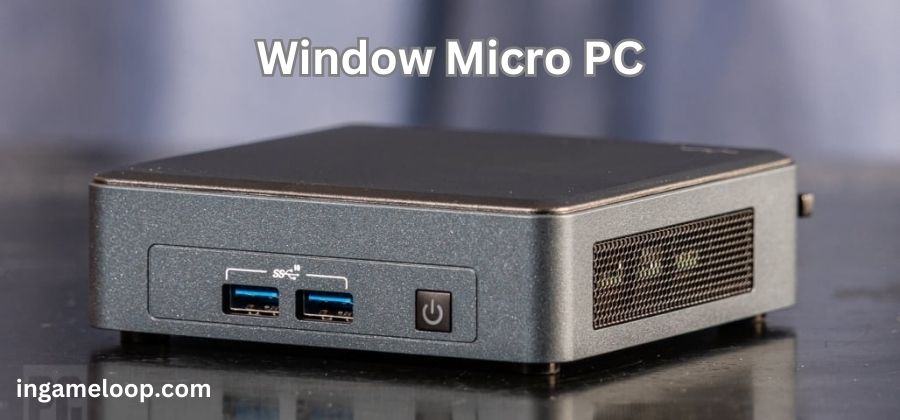
In a significant leap toward sleek and efficient computing, a cutting-edge Intel-based micro PC has emerged, promising a trifecta of compactness, portability, and Windows functionality.
This micro PC creation is the brainchild of maker Matt Deeds, who embarked on a mission to craft a device that merges compact design with uncompromising functionality. While the Raspberry Pi might have been the conventional choice, Deeds opted for the Intel NUC Mini PC as the beating heart of his creation. The result is a fusion of power and mobility, culminating in a technology masterpiece.
The display is affixed to the device through custom-designed 3D-printed elements, facilitating its hinge mechanism for opening and closing. The hardware is affixed to a sheet of laser-cut ABS, with a thickness of approximately 6mm, eschewing the traditional enclosure approach. The ABS frame also incorporates a handle cutout, contributing not only to its aesthetic appeal but also offering some ventilation for cooling purposes.
One of the standout features is its seamless compatibility with the Windows operating system. This integration ensures that users can harness the familiarity and utility of Windows to drive their work and play experiences. Equipped with a built-in 5-inch OLED display, the micro PC takes on a portable and self-contained identity, catering to users on the move.
While deeds has demonstrated its prowess by running Windows, the micro PC’s architecture also opens the door to exploring the Linux environment. This adaptability encapsulates the spirit of modern computing – versatility and customization.
Intel’s Edison stands out with its primary feature being the 22nm dual-core x86 architecture CPU running at 500 MHz, a departure from the norm in the IoT and micro-sized device arena. The device also encompasses 4GB of eMMC Flash, 1GB of DDR3, and an Intel Quark microcontroller clocked at 100 MHz, akin to the Intel Galileo.
Remarkably, the Edison’s compact footprint, measuring just 35.5mm x 25.0mm, only slightly larger than an SD card, boasts a 70-pin connector that breaks out numerous pins including interfaces for SD cards, UARTs, I²C busses, SPI with two chip selects, I²S, GPIOs (some with PWM capabilities), and a USB 2.0 OTG controller. Equipped with radio modules for 802.11 a/b/g/n and Bluetooth 4.0, all these features come at an affordable price point of around $50, making the Edison a compelling choice offering a dual-core x86 platform with exceptional connectivity options and processing power in an incredibly small form factor.
The Intel NUC Mini PC boasts sufficient power to support practical computing tasks beyond its more compact counterparts. Tailored for business applications, it incorporates functionalities like hardware-level KVM and remote administration.
In the grand scheme of technological evolution, the Intel-based micro PC serves as a harbinger of things to come. It signifies a future where performance is no longer bound by size, where convenience and power merge seamlessly, and where users can carry their computing needs in the palm of their hand. As this micro PC joins the ranks of innovative advancements, it serves as a beacon illuminating the path toward a compact yet impactful digital future.
Related:







